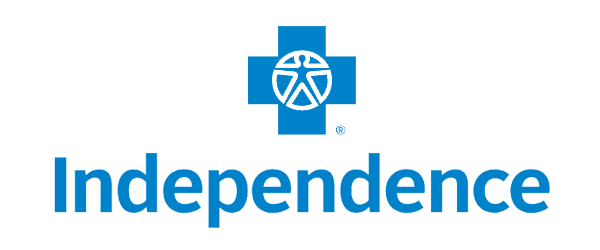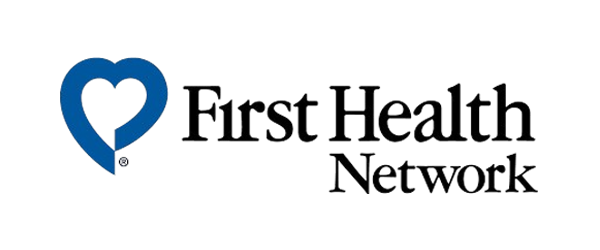Cocaine Addiction
Cocaine is a highly addictive stimulant drug. Creekside Recovery Group offers hope for recovery from cocaine addiction.
Jump to Sections
- What is Cocaine?
- How Does Our Cocaine Addiction Treatment Center Work?
- How Do I Know I Need Cocaine Addiction Treatment?
- Signs and Symptoms of Cocaine Addiction
- Long-Term Effects of Cocaine Abuse
- Can You Overdose on Cocaine?
- What to Expect at our Cocaine Addiction Treatment Center
- How Long Does Cocaine Treatment Last?
- Begin Cocaine Addiction Treatment at a Center Near You
Cocaine abuse and addiction can wreak havoc on virtually every part of a person’s life. But when an individual who has become dependent on cocaine receives proper care, they can regain control of their behaviors and resist the urge to abuse this dangerous drug. Enrolling in a cocaine addiction treatment program can be an essential step on the path toward a much healthier and more hopeful future.
What is Cocaine?
Cocaine is a powerful and addictive stimulant. It is derived from the leaves of the coca plant.
The drug typically appears as either a white powder or small crystalline rocks (which are often referred to as crack). The powder version of cocaine is usually abused by snorting it through the nose or dissolving it in water and injecting it. Crack cocaine is typically abused by smoking it.
When a person ingests cocaine, the drug binds to proteins in the central nervous system called dopamine transporters. These proteins reabsorb dopamine, a neurotransmitter that is associated with mood, attention, arousal, and pleasure.
Cocaine prevents the transmitters from performing their function, which results in the presence of excess dopamine in the central nervous system. This flood of dopamine is responsible for the intense rush that people experience when they use cocaine.
How Does Our Cocaine Addiction Treatment Center Work?
Creekside Recovery Network offers comprehensive, personalized care for adults who have become addicted to cocaine. Our commitment to individualized service means that each person who heals with us will have a unique experience. In general, we focus on the following two objectives:
- Helping people end their cocaine use
- Preparing people for successful recovery from cocaine addiction
When a person enters one of our cocaine addiction treatment facilities, one of their first activities is to complete a thorough assessment. This helps their treatment team identify the full scope of their needs, which may include co-occurring mental health concerns. The information that we collect during the assessment guides us as we develop the individual’s customized treatment plan.
During treatment, we help people develop the skills that will help them live a drug-free life. We may focus on areas such as identifying triggers, managing stress, avoiding or resolving conflicts, communicating in a healthy manner, repairing relationships, and preventing relapse.
Prior to a patient’s discharge, we also provide them with a plan to help them maintain and build on the progress they made while they were in our care.

How Do I Know I Need Cocaine Addiction Treatment?
The best way to determine if you need cocaine addiction treatment is to be assessed by a qualified professional. This person can provide you with an accurate diagnosis and recommend appropriate treatment options.
To help you decide if you should seek treatment for cocaine addiction, take a moment to read the following eight statements:
- You often use cocaine in greater amounts or for a longer period of time than you intended.
- You spend considerable amounts of time thinking about, acquiring, using, and recovering from the effects of cocaine.
- You have lied to friends and family members about how often you use cocaine.
- Your cocaine use has been a source of conflict in your personal relationships.
- You have missed school, work, or other obligations due to your cocaine use.
- You find it difficult to experience happiness or deal with sadness without using cocaine.
- You become angry or agitated when you can’t use cocaine.
- You fear that your cocaine use is ruining your life.
If you identify with one or more of the statements listed above, it may be time to schedule an assessment and get the help that can significantly improve your life.
Signs and Symptoms of Cocaine Addiction
- Diminished appetite and resultant unintended weight loss
- Significant changes in mood, attitude, and energy level
- Frequent absenteeism from school or work
- Unexplained financial difficulties
- Being deceptive about how they spend their time and who they associate with
- Using cocaine in a manner that is clearly hazardous, such as combining it with heroin or other addictive substances
- Continuing to abuse cocaine after incurring physical or social harm due to prior use
- Developing tolerance, or needing to use larger amounts of cocaine to experience the effects that previously they previously felt after much smaller doses
- Developing withdrawal symptoms, or experiencing physical and psychological distress when they try to stop abusing the drug
Long-Term Effects of Cocaine Abuse
The following are examples of the many potential negative effects of untreated cocaine abuse and addiction:
- Poor performance at work or in school
- Academic failure
- Job loss and unemployment
- Ruined friendships
- Separation, divorce, and loss of child custody
- Financial distress
- Impaired cognitive functioning
- Heart damage
- Increased risk of exposure to HIV and hepatitis
- Development of co-occurring mental health concerns
- Paranoia
- Stroke
- Overdose
- Death
Find Help Now.
At Creekside Recovery Group, we believe that long-term recovery is possible. Our practical programs can help you and a loved one
Can You Overdose on Cocaine?
Yes, you can overdose on cocaine. Overdose occurs when the amount or potency of cocaine that a person ingests exceeds their body’s ability to safely process the drug.
Signs of cocaine overdose include:
- Extreme agitation
- Excessive perspiration
- Dangerously elevated heart rate
- Significant increase in body temperature
- Rapid breathing
Anyone who exhibits the signs listed above after abusing cocaine may need immediate medical attention. Cocaine overdose can cause seizure, heart attack, stroke, and death.
Underscoring the dangers of cocaine abuse, the U.S. has experienced a dramatic rise in overdose deaths in recent years. According to the National Institute on Drug Abuse (NIDA), cocaine overdoses contributed to 6,784 deaths in 2015. By 2021, the annual number of cocaine-related overdose deaths had risen to 24,487. This represents an increase of 260% between 2015 and 2021.
What to Expect at Our Cocaine Addiction Treatment Center
Cocaine addiction treatment can occur at multiple levels of care, and it may involve a wide range of therapies and services. There is no single “perfect” approach to cocaine addiction treatment – what’s most important is finding a provider whose programming aligns with your needs and preferences.
Creekside Recovery Network facilities offer the following program options for adults who have become addicted to cocaine:
- Detoxification
- Residential treatment
- Partial hospitalization program (PHP)
- Intensive outpatient program (IOP)
- Outpatient rehab
Depending on which level a person is in, their treatment may include the following elements of care:
- Medication-assisted treatment (MAT)
- Individual and group therapy
- Family therapy
- Red light therapy
- Reiki
- EMDR and other trauma-focused services
- Music therapy
- Nutrition education
Please note that some of the services listed above may only be available at certain levels of care. To determine which level or levels of care may be best for you, or for additional details about the elements that may be included in your customized cocaine addiction treatment plan at one of our facilities, please contact Creekside Recovery Network directly.
How Long Does Cocaine Treatment Last?
The amount of time a person needs to remain in a cocaine addiction treatment program can vary considerably depending on factors such as:
- Do they need detox?
- How long have they been abusing cocaine?
- Do they have any co-occurring mental health concerns?
- Have they previously received treatment for cocaine addiction?
- Will they need residential care, outpatient treatment, or both?
Before a person enters cocaine addiction treatment at Creekside Recovery Network, we discuss all aspects of their care with them, including the length of stay that may be idea for them.


Medically Reviewed
Erika Dalton, LMSW
Erika Dalton, LMSW is a Licensed Master Social Worker and Director of Quality Control at Creekside Recovery Group
Facility Image Gallery
Begin Cocaine Addiction Treatment at a Center Near You
Creekside Recovery Network offers multiple levels of customized treatment for adults whose lives have been disrupted by cocaine addiction and certain co-occurring mental health disorders. At our cocaine addiction treatment centers, patients receive personalized service and comprehensive support from a team of skilled and compassionate professionals. Contact us today to learn more or to schedule a free assessment.










 Now that I have completed my successful journey here I would like to say that throughout it I was treated with nothing but respect. To take that a step further, I felt as if I was being treated by family.
Now that I have completed my successful journey here I would like to say that throughout it I was treated with nothing but respect. To take that a step further, I felt as if I was being treated by family.







